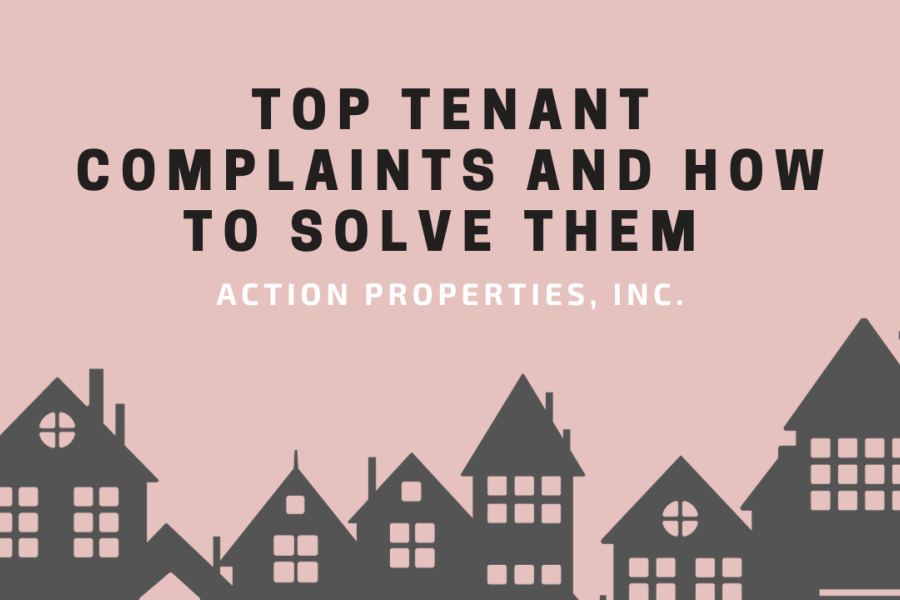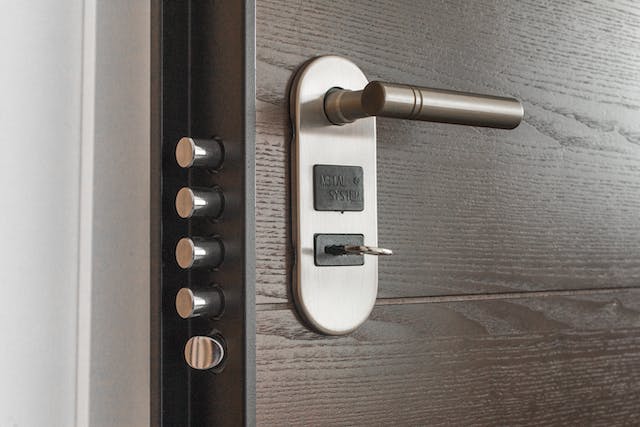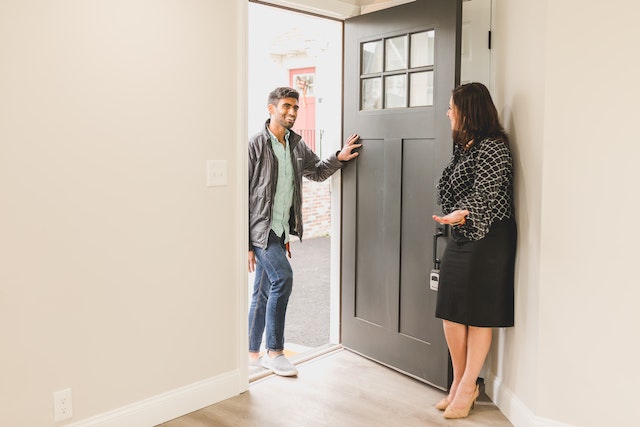
Landlords play a vital role in ensuring their rental properties are safe, comfortable, and enjoyable to live in. One key aspect of this responsibility is effectively addressing tenant complaints. To foster a positive landlord-tenant relationship, landlords should be aware of the most common grievances tenants have and know the effective strategies for resolving these issues.
Here are the most common complaints from tenants and how to solve them:
Maintenance and Repair Issues
A frequent area of concern for tenants involves maintenance and repairs. Issues like leaky faucets, malfunctioning HVAC systems, or general property wear and tear can significantly impact a tenant's quality of life.
To effectively address these problems, landlords should establish a responsive and efficient system for handling repair requests. This could involve setting up an online portal for maintenance requests, ensuring a swift acknowledgment of the issue, and providing clear timelines for resolution.
Regular property inspections are also crucial. By proactively identifying and addressing potential maintenance issues, landlords can prevent minor problems from escalating into major complaints.
When repairs are necessary, it's important to employ qualified professionals who can complete the work to a high standard. This not only solves the immediate problem but also demonstrates to tenants that their comfort and satisfaction are taken seriously.

Noise Complaints
Noise disturbances, whether from neighbors or external sources, are another common tenant complaint. To mitigate this, landlords should establish and enforce clear noise policies in their lease agreements. This sets expectations for tenant behavior and provides a framework for addressing noise issues when they arise.
If the noise issue involves multiple tenants, landlords might consider mediating the situation to find a mutually agreeable solution. In cases where external noise is a concern, investing in soundproofing measures can be an effective way to enhance the living environment for tenants.
Poor Communication
Effective communication is the cornerstone of a healthy landlord-tenant relationship. Tenants often express frustration when they feel their landlord is unresponsive or unclear in their communications.
To address this, landlords should ensure they are easily reachable and responsive to tenant inquiries and concerns. Regular updates, especially regarding property maintenance or policy changes, can also help keep tenants informed and engaged.
Implementing a structured feedback system can be beneficial. This could involve periodic surveys or suggestion boxes, allowing tenants to voice their concerns and suggestions anonymously. By actively seeking and addressing feedback, landlords can demonstrate their commitment to tenant satisfaction and continuous improvement.
Security Concerns
Landlords should regularly assess and enhance property security measures to keep their tenants feeling safe. This can include updating locks, improving outdoor lighting, and installing security cameras in common areas. Landlords should also ensure that tenants are aware of safety features and protocols, perhaps through regular safety briefings or an information booklet.

For properties in areas with higher security risks, additional measures like gated access or hiring security personnel could be considered. It's beneficial to stay informed about local crime trends and respond accordingly, ensuring tenants feel secure in their homes.
Pet Problems
Pets can be a source of disputes in rental properties. Complaints may arise from pet noise, damage, or allergies.
To manage these issues, landlords should have a clear pet policy in their lease agreements, outlining allowed types and sizes of pets, and any restrictions. Screening pets before approving them can also save you a lot of trouble in the future.
Regular property inspections can help identify any pet-related damages early, and a pet deposit or pet rent can cover potential costs.
Pest Infestations
Pest infestations, such as rodents or insects, can be a significant concern for tenants. Landlords should invest in regular pest control treatments and ensure that the property is well-maintained to prevent common attractants for pests.
Prompt action is crucial upon receiving a complaint about pests. Employing professional pest control services and educating tenants about preventive measures can effectively manage and prevent future infestations.
Privacy Intrusions
Tenants may complain about privacy intrusions, either from the landlord or other tenants.
Respecting tenant privacy is crucial. Landlords should always provide notice before entering a tenant's space, as required by law, and ensure that tenant boundaries are respected by all occupants. Setting clear guidelines about privacy in the lease agreement and addressing any violations promptly can mitigate these concerns.

Parking Problems
Parking issues, such as insufficient space, unauthorized use, or disputes between tenants, are common, especially in multi-unit rental properties. Effective management includes providing clear parking policies, designating parking spaces, and monitoring for compliance.
In properties with limited parking, considering permit systems or assigned parking can help alleviate these issues.
Rent Increases
Rent increases are a sensitive issue and can lead to tenant dissatisfaction if not handled carefully. Transparency is key. Landlords should communicate the reasons for rent increases clearly, ensuring they are in line with market rates and local rent control laws.
Providing ample notice and being open to discussion with tenants can help ease the transition. Also consider the timing and frequency of rent increases. Avoid frequent or abrupt hikes that can strain the landlord-tenant relationship.
How Can Property Managers Help
Property managers act as a convenient bridge between landlords and tenants, offering expertise in handling various tenant complaints. They bring professional experience in conflict resolution, legal compliance, and customer service.
By effectively managing day-to-day operations, property managers can prevent many issues from arising and swiftly address any that do. Their role in maintaining property standards, facilitating clear communication, and ensuring policy enforcement can significantly reduce the frequency and severity of tenant complaints.
This ultimately leads to a more harmonious living environment and improved tenant retention.

Conclusion
Effectively addressing tenant complaints involves a comprehensive approach to property management, focusing on proactive problem-solving, effective communication, and prioritizing tenant welfare. By addressing specific issues like those mentioned above, landlords can ensure tenant satisfaction and maintain a successful rental business. When in doubt, it’s best to work with a reliable property manager to help you handle tenants and manage your rental investments efficiently.
Disclaimer: This blog should not be used as a substitute for legal advice from a licensed attorney in your state. Laws change, and this post might not be updated at the time of your reading. Please contact us for any questions you have in regards to this content or any other aspect of your property management needs.